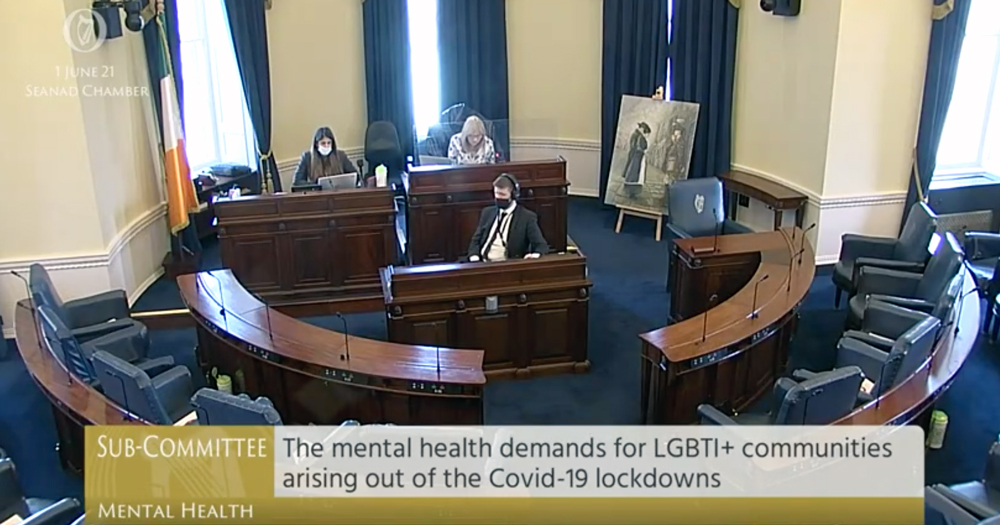The lack of trans healthcare in Ireland combined with the rollback of services in the Tavistock clinic in England is having a huge negative effect on trans young people, the Oireachtas Sub Committee on mental health heard on Tuesday.
One of the main problems is the massive waiting lists for young trans people to gain access to the necessary healthcare in Ireland and abroad. Many of the psychological services had been outsourced to the Tavistock clinic, but following a high court ruling in the UK which restricted the care that underage trans people could receive in the country, it has been more difficult to access and no replacement has been set up.
“Last night I received a couple of messages from families who had just received a heartbreaking letter to tell them that their children have timed out because Tavistock will not be seeing them,” said Vanessa Lacey, Health and Education Manager at TENI. “So they’ve been waiting on a two and a half year waiting list and now they’re on a new three year waiting list.
“One of the parents [that TENI has worked with] said we’re currently on suicide watch as it is. We need to have something in the interim. We need to do something!”
She suggests a private option for young people in the mean time as self harm risks are so high in the trans community.
Moninne Griffith of BelonG To echoed her calls. “Some young people have been waiting and waiting and waiting and now there’s nothing to wait for, it’s very bleak. For some of them who are already struggling with mental health problems this can be the final straw and there’s been some very distressed people in touch recently.”
There has been a worrying increase in requests for help from BelonG To. There have been 1290 individual one-to-one interventions with young people so far this year which is a 64% increase compared to around this period last year just before Covid-19 hit. The organisation is concerned that the mental health impacts of the pandemic will outlast the virus itself.
“The reality is that despite the strides we’ve made in this country over the last decade, people’s mental health has been compounded since the Covid-19 pandemic began, as LGBT young people are losing access to spaces and support that are key to their wellbeing,” Griffith said.
The rise of transphobia and homophobia online was also highlighted as was the impact this can have on LGBTQ+ young people who have been spending more time online due to the pandemic. This rise in online abuse is also translating into offline abuse.
“Just three weeks ago I spent my afternoon with the Gardaí assessing my flat because of a death threat that was put in against me just for being visibly trans and being an immigrant,” said Éirénne Carroll, Chief Executive Officer of TENI. “These things going on on Twitter are having a real effect on everyday life. What do you expect the impact on your mental health is when you spend a Friday afternoon doing an assessment of your flat because of a death threat?”
There was also support from some of the politicians who attended the Sub Committee to ban conversion therapy. Sinn Féin TD Mark Ward said that “still being able legally for a young person to go into conversion therapy is absolutely bonkers. We have a role as legislators to start pushing this forward to make sure this draconian practice is wiped out of society.”
© 2021 GCN (Gay Community News). All rights reserved.
Support GCN
GCN is a free, vital resource for Ireland’s LGBTQ+ community since 1988.
GCN is a trading name of National LGBT Federation CLG, a registered charity - Charity Number: 20034580.
GCN relies on the generous support of the community and allies to sustain the crucial work that we do. Producing GCN is costly, and, in an industry which has been hugely impacted by rising costs, we need your support to help sustain and grow this vital resource.
Supporting GCN for as little as €1.99 per month will help us continue our work as Ireland’s free, independent LGBTQ+ media.
